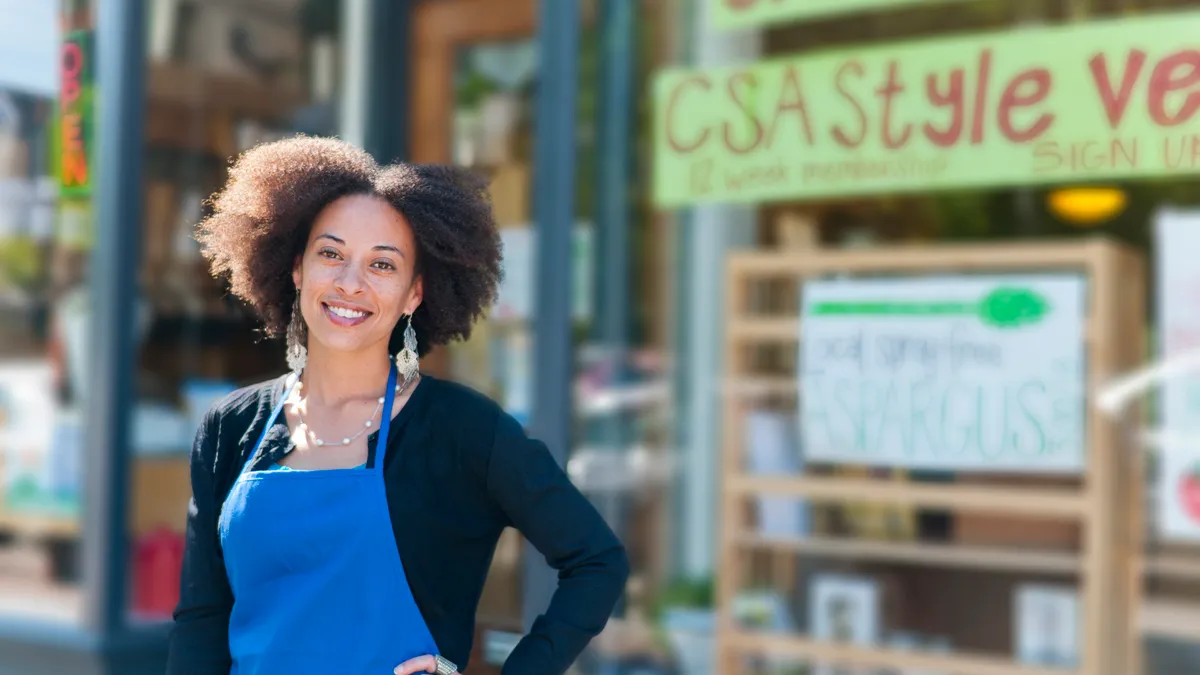Dive Brief:
- The New York City Commission on Human Rights issued enforcement guidance this week that prohibits employers from punishing, demoting, firing or taking other adverse actions against workers who wear their hair in styles reflecting their culture. The guidance, while applicable broadly, particularly acknowledges black workers' right to wear natural, treated or untreated hairstyles, including cornrows, locs, braids, twists, Bantu knots, fades and Afros and to keep their hair uncut or untrimmed. However, the new guidelines don't conflict with health and safety policies requiring workers to wear hair nets or pin up their hair, as long as the rules apply to all workers, according to the commission.
- Investigations into complaints by workers at a Morris Park medical facility; a Morrisania nonprofit firm; a Howard Beach restaurant in Queens; and an Upper East Side hair salon helped trigger the ban, the New York Times reported. The guidance says these changes "reflect a shift in American society in re-evaluating the basis for longstanding appearance norms, in light of their discriminatory nature, and the harm and burden placed on Black people who maintain prohibited hairstyles." This guidance is the first of its type in the country, the Times noted.
- The commission said it can impose penalties of up to $250,000 on employers that violate the guidelines, with no cap on damages. The commission also said it can require changes in organizations' internal policies and the rehiring of individuals fired because of their hairstyles.
Dive Insight:
It's unclear how many other municipalities will follow in NYC's steps, though notably, there is not clear judicial precedent in place regarding protection against hair discrimination just yet. The Supreme Court actually declined to hear a case regarding workplace bans on dreadlocks in 2018.
But the commission called out employment practices that unfairly target African-American workers: "Bans or restrictions on natural hair or hairstyles associated with Black people are often rooted in white standards of appearance and perpetuate racist stereotypes that Black hairstyles are unprofessional. Such policies exacerbate anti-Black bias in employment, at school, while playing sports, and in other areas of daily living."
As employers seek to expand their diversity and inclusion initiatives, some may want to consider whether they have different expectations for employees based on race. Those in New York may especially need to revisit their employment guidelines — though many may have already done so recently with the state's passing of the Gender Expression Non-Discrimination Act.
"Employers who maintain grooming or appearance policies should revisit those policies to ensure that Black employees are not subjected to disparate treatment. For example, a policy should not prohibit twists, cornrows or other hairstyles commonly associated with Black people, and should not require employees to straighten or relax hair," Keith Gutstein, co-chair of the Labor & Employment Law practice at Kaufman Dolowich & Voluck, LLP in New York, told HR Dive in an email.












